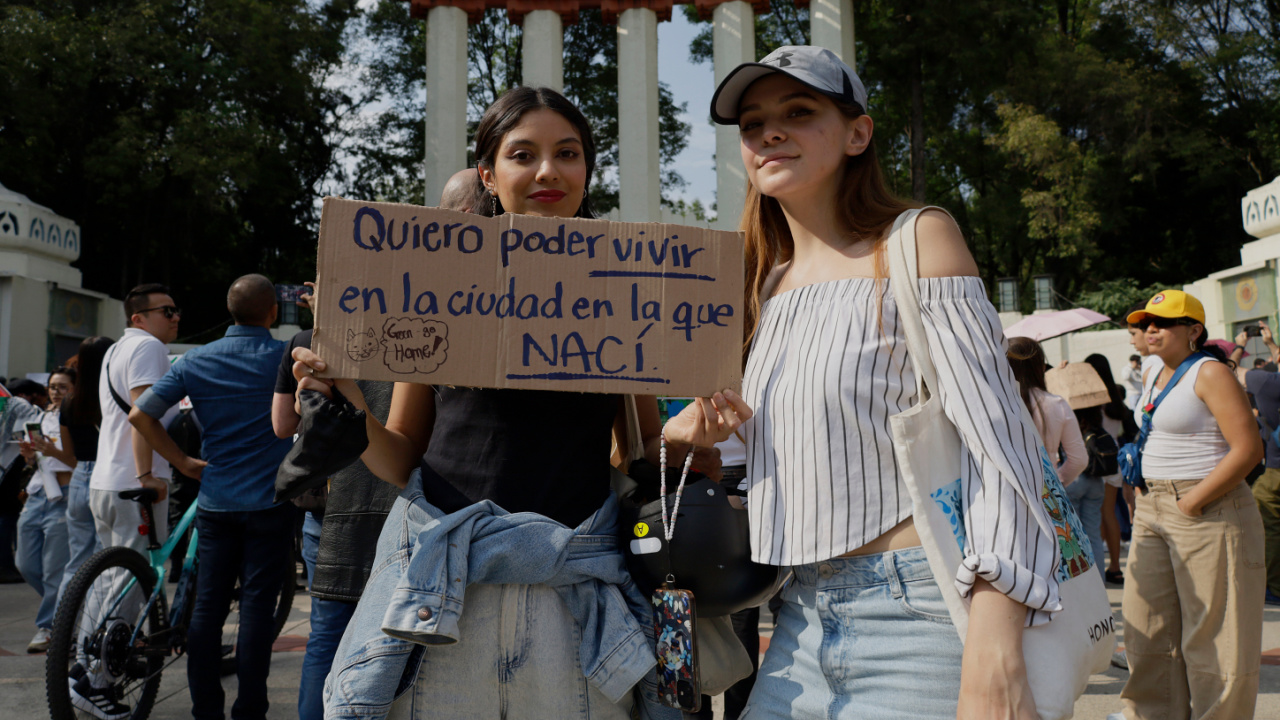
Mexico City Chefs Plan Pay-What-You-Can Day in Solidarity With Residents Fighting Gentrification
Chefs in Mexico City are challenging the food industry and fighting back against gentrification. The idea is simple. Two chefs are teaming up to lead a collection of restaurants in a pay-what-you-can day on Aug. 27. With Mexicans protesting the rampant gentrification from American and European expats, the day of solidarity with Mexicans is a perfect way to embrace culture, food, and pride.
Two Mexico City chefs are challenging the food industry and gentrification
L.A. TACO reports that Saqib Keval and Norma Listman, the chefs behind Masala y Maíz, are leading the charge. The idea is inspiring other restaurants. According to L.A. TACO, Keval says that they have organized almost two dozen restaurants to join. The list, which keeps growing, includes some of the top restaurants in the city, including Expendio de Maíz Sin Nombre and Baldio.
Keval and Listman are challenging the growing gentrification of Mexico City by challenging food accessibility. Foreigners living in Mexico City using the euro and dollar are pushing long-term residents out of homes and apartments. Rent prices are soaring throughout the city due to the influx of expats moving into neighborhoods like Roma and Condesa.
“In a time when inequality is tearing communities apart, we wanted to show that restaurants can be part of the solution, not the problem,” Keval told L.A. TACO. “By letting people pay what they can, we’re proving that accessibility doesn’t mean sacrificing success—it’s about building trust and shared humanity.”
Mexico City residents have been voicing their concern about rising costs due to expats for years. Airbnb, tourists, expats, and digital nomads have been increasingly gentrifying Mexico City since the 2010s.
Residents made headlines last month protesting tourists and expats
Mexico City residents took to the streets during the 4th of July weekend in protest of gentrification gripping the city. The protesters turned their frustration towards tourists and expats as well as foreign-owned and wealthy Mexican-owned businesses.
One group blamed for the rising cost of living is digital nomads, who have become popular in recent years. Companies in Europe and the United States have offered remote-work policies since the COVID-19 pandemic, and employees are using them.
Remote-work policies are referenced as a major source of expats creating gentrification around the world. Travel Noire reported on the potential economic pressure that digital nomads could put on cities in other countries. As more people became digital nomads and shared their experience, more people wanted to join the trend. However, as Travel Noire warns, the more people that move to countries with favorable currency exchanges, the greater the strain on the city’s resources. The resources include housing.
Mexico City’s government is addressing gentrification
Mexico City’s government, in response to the protests, created and released a 14-point plan to address gentrification. According to CNN, Mayor Clara Brugada announced the plan to combat growing concerns with a few crucial moves. For one, the plan includes rent control to stabilize rental costs for residents. Additionally, Mexico City officials included regulating short-term rentals, like Airbnb, to minimize the impact on residents.
Airbnb regulations are a growing concern across the globe. The rising popularity of short-term rentals in Los Angeles intensified the city’s affordable housing shortage. In response, Los Angeles city officials pushed for regulating short-term rentals and set forth rules. The rules include limiting short-term rentals to a total of 120 days a year, and landlords must prove that it is their primary residence.




